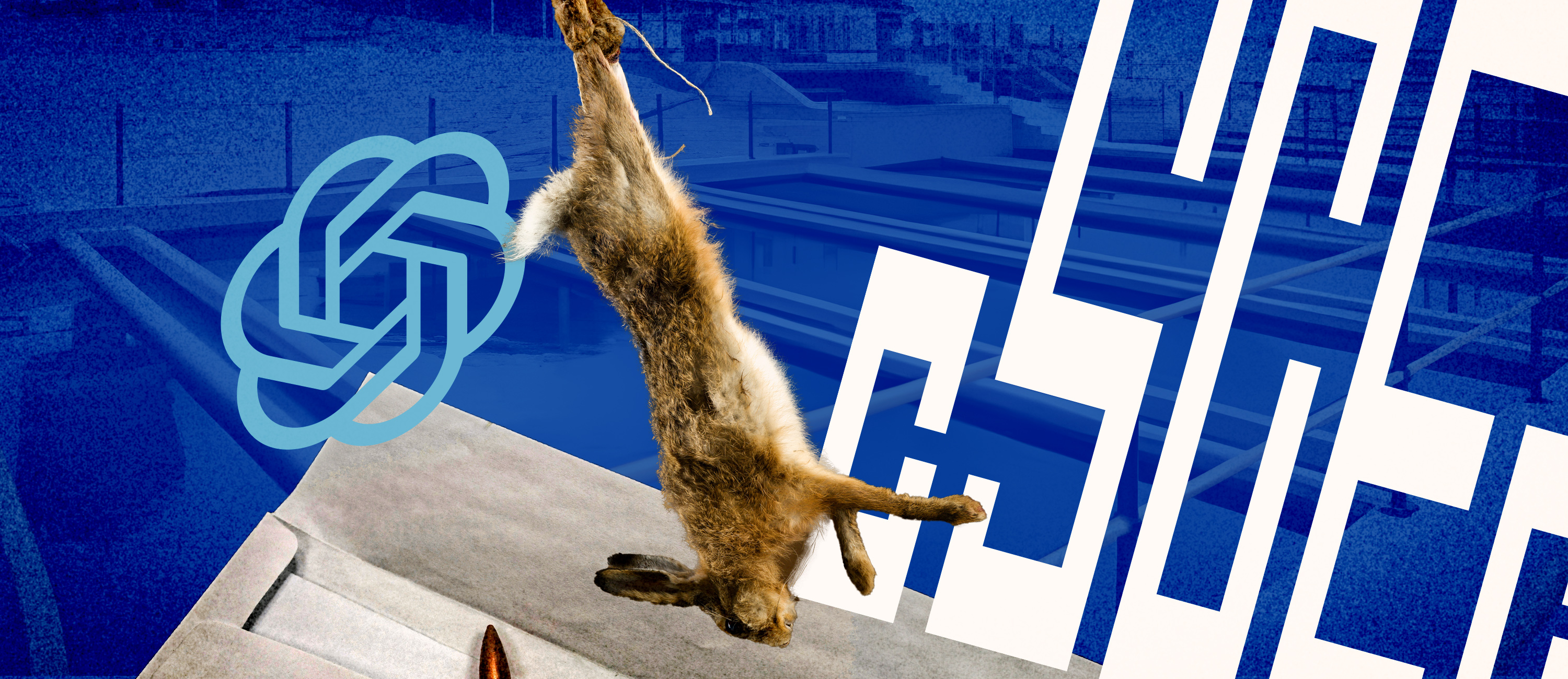Some folks at the parastatal uMngeni-uThukela Water (UUW) might say there’s more to the story of a dead rabbit and a flip-flopping Chinese construction tycoon, but this didn’t stop a high court judge from giving the water utility a snotklap on Wednesday.
As is typical with legal cases, it’s complicated.
An attempt by UUW to reverse an earlier court order relating to a R7-billion tender was not deemed urgent by KZN High Court Judge Sidwell Mngadi.
The judge was unimpressed with UUW’s approach and slapped the water utility with punitive costs for abusing court processes.
Here’s a quick recap of the legal proceedings and the poor rabbit.
Last week, we reported how China State Construction Engineering Corporation South Africa (CSCEC) hauled UUW to court over the water tender.
It’s a helluva tale, involving claims, counter-claims, the dead rabbit, a bullet, Chinese “heavies”, ChatGPT, CCTV footage and the flip-flopping construction tycoon Stephen Lu.
CSCEC is reputedly the biggest construction company in the world and was unhappy that its bid to build a water treatment plant in KwaZulu-Natal (in a joint venture with Lu’s company, Base Major Construction) was rejected.
The CSCEC-Base Major JV bid was R1.8-billion cheaper than the winning R7-billion bid, headed by South Africa’s Icon Construction.
The case surfaced in February when CSCEC took UUW to the KZN High Court in Pietermaritzburg to interdict UUW from taking steps to award the tender, saying it had been unfairly treated. That court action continued in March, when a consent order between the parties agreed to put the tender on hold, pending a final court determination at a later date.
A host of issues
In the meantime, UUW had to provide a record of the tender decision. Later, lawyers for both sides haggled over a host of issues.
Then, late last week, UUW made an urgent application to the court to rescind the March consent order, alleging that Base Major didn’t support the legal proceedings and lawyers acting for the company did not have power of attorney.
UUW said it had discovered that a dead rabbit was delivered to Lu, his colleague found a bullet in an envelope on his car, and Base Major directors were intimidated by CSCEC and forced to sign a company resolution in March saying they supported legal action against UUW.
Lu said Base Major didn’t want to join the action, but CSCEC strong-armed them into it — a claim CSCEC CEO Chao Wang vehemently denied.
Wang said CSCEC had nothing to do with the rabbit, and that Lu was old and slow and misunderstood an incident as a kidnapping.
The essence of what was before Judge Mngadi last week was whether or not UUW’s application was urgent.
Before the judge could rule, lawyers for CSCEC also brought an urgent application to court on Wednesday, 7 May, attempting to prove beyond doubt that they had power of attorney by producing an affidavit from Lu disavowing earlier statements that he was threatened.
This was in response to UUW’s lawyers asking in court last week: “Where is Mr Lu?”
Well, CSCEC lawyers said, on 5 May, Lu deposed to an affidavit saying he willingly withdrew a criminal complaint relating to threats against him and confirming he voluntarily signed a Base Major resolution supporting the legal review application of the losing tender.
This urgent application relating to power of attorney was also struck off as not urgent. However, Judge Mngadi didn’t buy UUW’s story. He said there was nothing to show that Lu’s co-directors at Base Major didn’t support the case against UUW. And, while Lu claimed he was forced into signing the resolution, witnesses said he signed it “freely and voluntarily”.
The judge went through a chronology of events from Lu’s reluctance to support the case against UUW on 19 March, through statements relating to duress, to the company resolution.
‘Parallel process’
“In my view, there is nothing showing that there was anything untoward in the resolution,” said Judge Mngadi.
He said last week’s court bid by UUW was “a parallel process” that sought to scupper the legal review of the tender, “by seeking contradictory relief in an urgent application” (relating to whether CSCEC’s attorneys had the authority to act).
There was no reason why the issue could not be raised in the review. It was not urgent, said the judge, and struck it off the roll with a punitive costs order, saying it was an abuse of court process.
Lawyers for UUW said the issue of power of attorney still had to be resolved by the court. They said they were taking urgent instructions from UUW regarding the way forward.
Lawyers for CSCEC said while the issue of authority could still be revived by UWW (on a non-urgent basis), they were adamant they had authority — provided by Lu’s 5 May affidavit.
They said the upshot of Judge Mngadi’s ruling was that UUW was still bound by the consent order of March: it cannot award the tender until arguments have been heard in court. UUW was meant to have furnished answering affidavits in that matter by 30 April and had yet to do so.
The interests of justice, CSCEC’s lawyers said, required that this evidence be admitted so that the review (concerning R7-billion of taxpayers’ money and water provision to KZN residents) “can be resolved expeditiously”. DM




